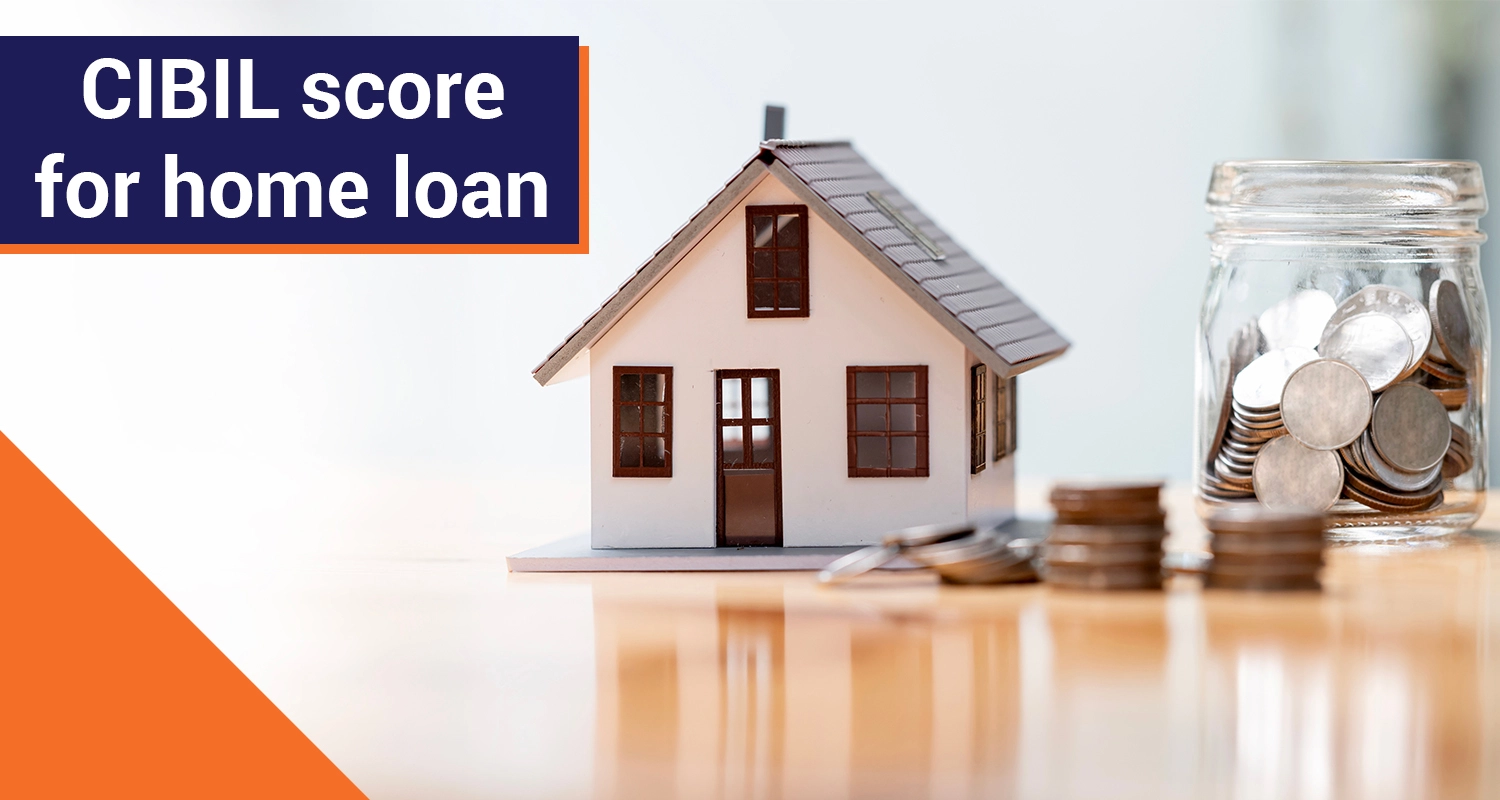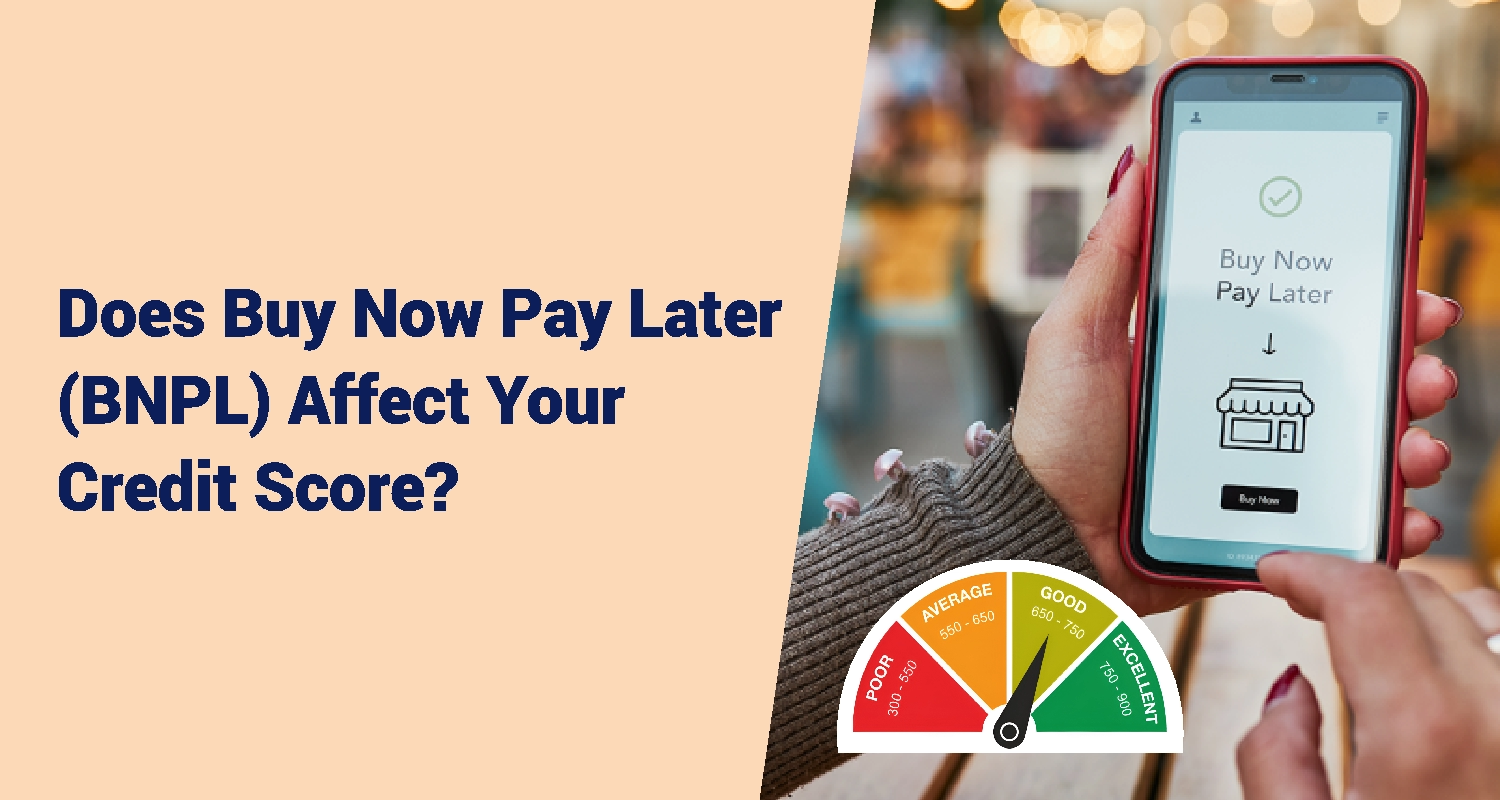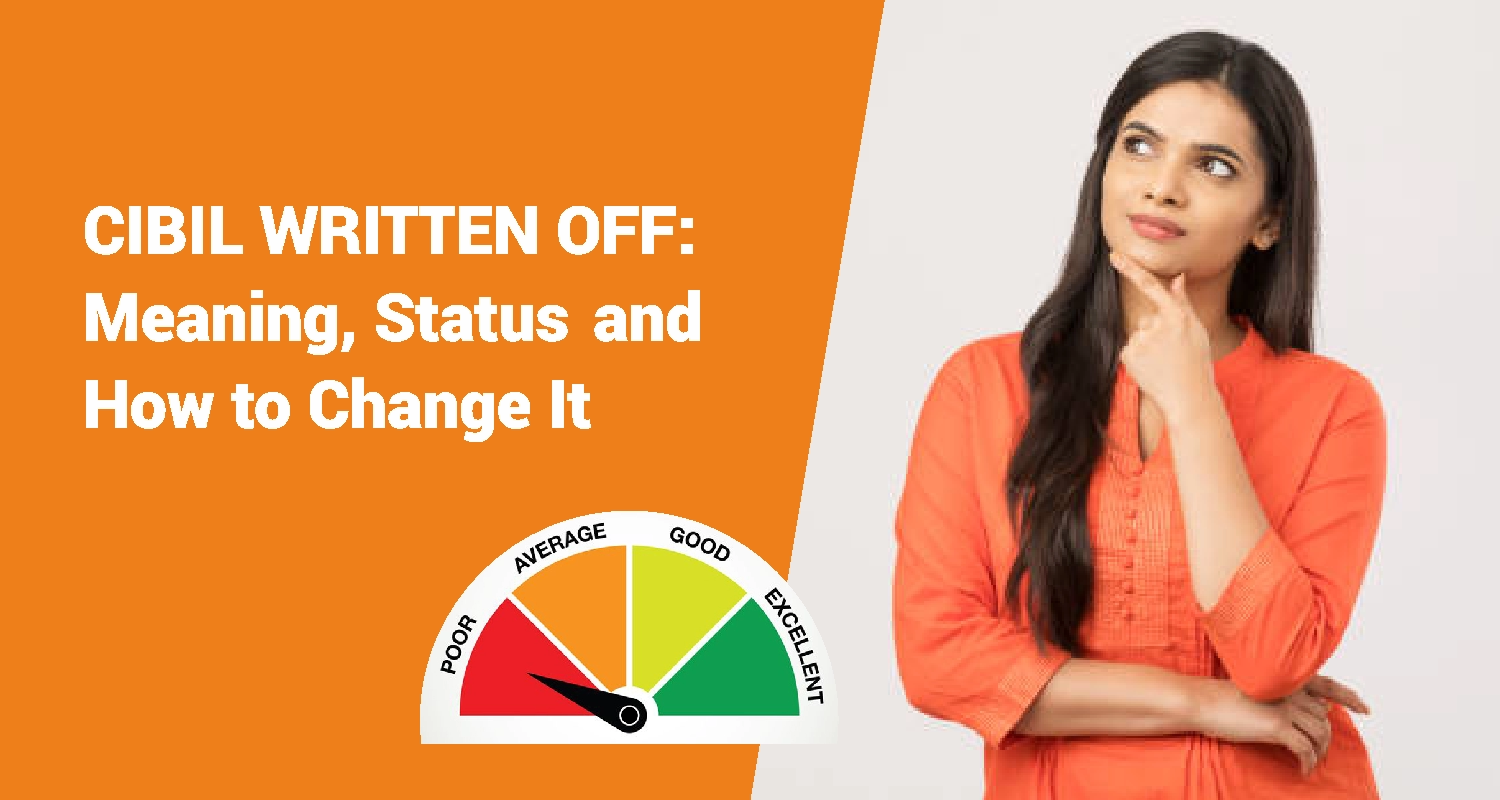What is the Cibil Score Required for Home Loan

Today, many working-class individuals aspire to own their own homes. For countless people, owning a home is ‘the life goal.’ However, making this dream a reality often depends on getting a Home Loan. Your credit score directly influences your ability to secure a home loan. Lenders meticulously scrutinize it when evaluating your application. However, a low CIBIL score can be a barrier for many prospective homeowners, denying access to the desired home loan. So, what's the minimum CIBIL score for home loans, and how can you improve your scores? Here's everything you need to know.
What is a CIBIL Score?
Credit reports are provided by the four major credit bureaus in India: TransUnion CIBIL, Experian, Equifax, and CRIF High Mark. Among these, TransUnion CIBIL is the most widely used. CIBIL score is a simple numerical representation of your creditworthiness. It is a three-digit score ranging from 300 to 900. Scores below 700 are generally viewed poorly by lenders, indicating insufficient credit behavior and a higher risk of loan default. Conversely, scores closer to 900 suggest maximum creditworthiness.
The CIBIL score is calculated based on past loan repayments, loan tenure, number of loan accounts, credit utilization ratio, etc. A higher credit or CIBIL score increases the likelihood of home loan approval. But what if my credit score is on the lower side? What is the minimum credit score for a home loan?
What should be CIBIL score for home loan?
There is no best CIBIL score for home loan eligibility. However, a credit score between 700 and 750 is recommended for faster home loan approval. While some lenders might accept a minimum score of 650, having a score of 750 or above puts you in a better position to negotiate favourable loan terms. A high CIBIL score may lead to lower interest rates (subject to the lender's discretion) and up to 90% Loan-to-Value Ratio. That means if you have a good CIBIL score, you can secure a loan of up to 90% of the property’s value.
Scores between 300 and 549 are not just considered poor by lenders, they often result in rejected loan applications. Scores from 550 to 649 are average and could secure approval if other criteria are met. However, simply meeting the minimum score may lead to less favorable terms, potentially resulting in higher interest rates for your home loan. So, it's not just about getting a home loan, it's about getting a loan on your terms. To what level does the credit score impact my home loan eligibility?
Get Gold Loan at the comfort of your home
Apply NowEffects of CIBIL score on Home Loan:
1. Application Rejection:
A poor CIBIL score, especially below 500, can lead to application rejection, regardless of a stable income or employment. Additional debts or low income further diminish approval chances. Each of your loan applications triggers a hard inquiry (inquiry made by lending institutes) on your PAN, reducing your score. Conversely, if you have a credit score above 750, you are seen as a responsible borrower, which results in a quick loan approval.
2. Higher Interest Rate:
A CIBIL score between 650 and 750 may secure approval but at a higher interest rate than those between 750 and 900. This hike raises your EMIs and total repayment costs due to the risk of default associated with lower credit scores.
3. Smaller Loan Amount:Lenders check your income and credit scores to determine the sanctioned loan amount. Lower scores and incomes result in smaller loans. For example, if the house property is worth Rs.80 lakhs, a high credit score can get you a loan of up to Rs.72 lakhs, but a low credit score may cap the loan amount to 70% or even 60%.
4. Lower Loan Tenure:Higher credit scores grant longer repayment tenures of up to 30 years, reducing monthly EMIs. Conversely, lower scores result in shorter loan tenures, increasing monthly payments, and reducing savings.
5. Lower Negotiation Power:
A low credit score caps your ability to negotiate favorable loan terms, such as longer tenure, competitive rates, and larger loan amounts.
So, if you have a low credit score, you can still get a home loan. But if you are planning to borrow to purchase a house in the near future, another approach can be to polish your credit score.
How do I improve my credit score for housing loan?
To boost your CIBIL score for a home loan, follow these effective strategies:
- Pay Bills on Time: Ensure timely payment of all bills, including credit card dues, loan EMIs, and utilities. Late payments can lower your credit score.
- Reduce Debt: Focus on reducing outstanding debts, especially credit card balances. Aim for a credit utilisation ratio below 30% to maintain a good score.
- Monitor Credit Usage: Keep your credit utilisation in check by using only a portion of your credit limit. Avoid maxing out credit cards, which can signal financial strain.
- Diversify Credit: A balanced mix of secured and unsecured loans can positively impact your score. Ensure that you haven’t collected too many unsecured loans.
- Limit Loan Applications: Each loan application leads to a ‘hard inquiry’ on your report, temporarily lowering your score. So remember to research lenders before applying to minimize inquiries.
By following these strategies consistently, you can steadily improve your CIBIL score. This will enhance your eligibility and terms when applying for a home loan or any other credit. While working on your CIBIL score, ensure you keep checking it regularly. To check your CIBIL score,
- Visit the official CIBIL website.
- Choose 'Get Free CIBIL Score & Report.'
- Enter your name, email ID, and create a password.
- Provide an ID proof (passport, PAN card, Aadhaar, or Voter ID). Also, input your PIN code, date of birth, and phone number.
- Click 'Accept and continue.'
- Receive an OTP on your mobile. Enter the OTP and click 'Continue.'
- Click 'Go to dashboard' to log in and view your credit score.
- The site will redirect you to myscore.cibil.com.
- Click 'Member Login' to access your account and view your CIBIL score.
If you wish to check the detailed, paid version of the credit report, you must pay Rs.550, after which you get the report within three business days. Additionally, waiting at least 45 days before checking your latest report or disputing any information is recommended. Lenders update data at different times, so even if you pay off everything owed for a period, it won't instantly reflect on your credit report.
Conclusion:
Getting a Home Loan is a significant step toward owning a home. A good CIBIL score opens doors to this opportunity and saves you money over time. Monitoring your score regularly, improving it if needed, and practising responsible financial behavior is key to reaching your homeownership goals. Some lenders may consider home loan applications with scores between 600-700, but it's advisable to boost your credit score above 700 before applying for a home loan. This helps you secure a better deal on your home loan and ensures a smoother home-buying experience.
FAQs:
Q1. What is CIBIL 2.0?Ans. CIBIL 2.0 is a fresh scoring model by TransUnion CIBIL Limited for individuals' credit reports. New borrowers with less than six months of credit history get a score reflecting lending risk.
Q2. Can I get a home loan if I am on the CIBIL defaulters list?Ans. Having defaulted previously makes it challenging to get a home loan approved. Some lenders might consider approval if you've shown responsible behavior since the default and have a low Fixed Income to Obligation Ratio (FOIR), though interest rates will likely be higher.
Q3. If I apply for a credit card, will my credit score be affected negatively?Ans. applying for a credit card won’t affect your CIBIL score. Plus, if your old credit card has a zero balance, there's no need to worry or close it. If you have maintained a low utilization rate and have a good payment history, it showcases responsible credit behavior that boosts your credit score.
Q4. Can I take out a home loan without the CIBIL score?Ans. Lenders generally prefer borrowers with a credit history because they can measure the risk involved. However, if you don’t have a credit history, some lenders consider new-to-credit applicants using other factors like EMI/NMI ratio, job stability, and employer type.
Q5.What is the good CIBILl score for home loan?Ans. A CIBIL score of 750 and above is generally considered to be a good CIBIL score needed for home loan.
Sapna aapka. Business Loan Humara.
Apply NowDisclaimer: The information contained in this post is for general information purposes only. IIFL Finance Limited (including its associates and affiliates) ("the Company") assumes no liability or responsibility for any errors or omissions in the contents of this post and under no circumstances shall the Company be liable for any damage, loss, injury or disappointment etc. suffered by any reader. All information in this post is provided "as is", with no guarantee of completeness, accuracy, timeliness or of the results etc. obtained from the use of this information, and without warranty of any kind, express or implied, including, but not limited to warranties of performance, merchantability and fitness for a particular purpose. Given the changing nature of laws, rules and regulations, there may be delays, omissions or inaccuracies in the information contained in this post. The information on this post is provided with the understanding that the Company is not herein engaged in rendering legal, accounting, tax, or other professional advice and services. As such, it should not be used as a substitute for consultation with professional accounting, tax, legal or other competent advisers. This post may contain views and opinions which are those of the authors and do not necessarily reflect the official policy or position of any other agency or organization. This post may also contain links to external websites that are not provided or maintained by or in any way affiliated with the Company and the Company does not guarantee the accuracy, relevance, timeliness, or completeness of any information on these external websites. Any/ all (Gold/ Personal/ Business) loan product specifications and information that maybe stated in this post are subject to change from time to time, readers are advised to reach out to the Company for current specifications of the said (Gold/ Personal/ Business) loan.



